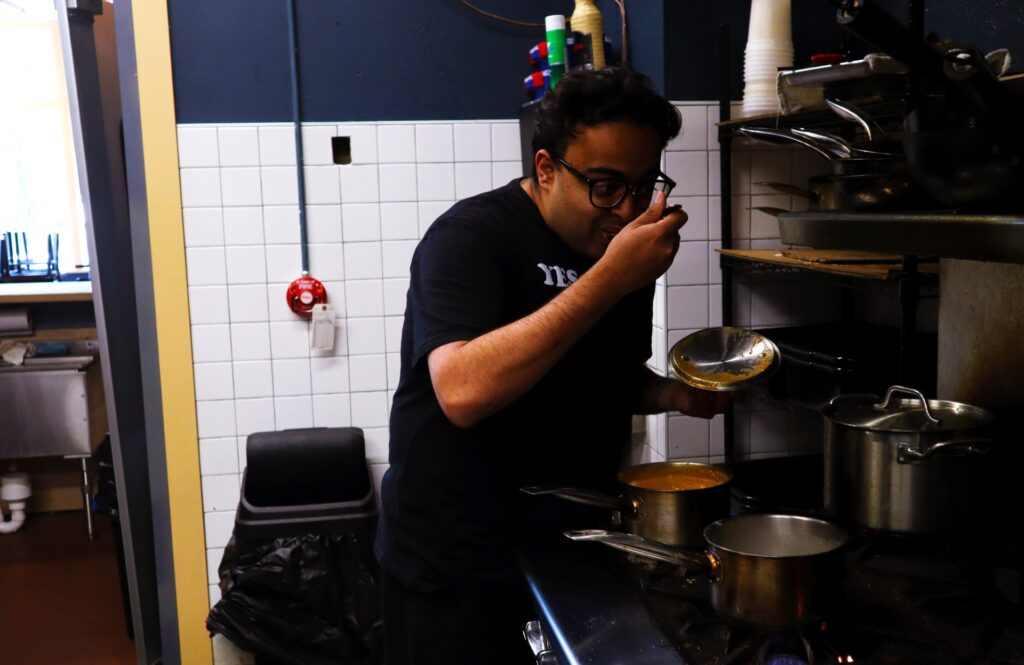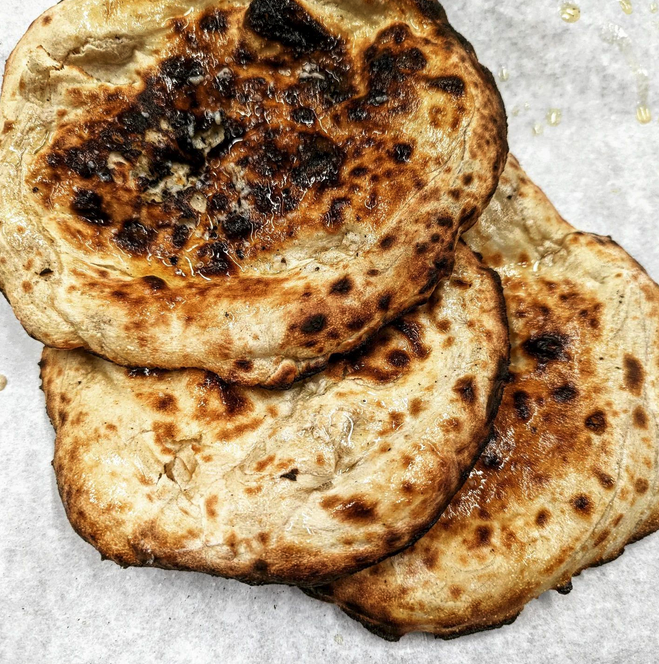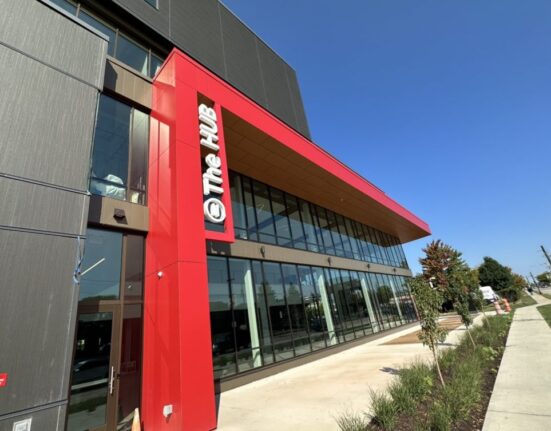
A new take on new cuisine for Madison, Sultan brings Pakistani food to Madison’s near east side.
One of Madison’s newest restaurants is the only of its kind in the city. Sultan offers Pakistani food with a modern twist and a tip-free business model. The restaurant has only been around for two months, but the buzz for new cuisine keeps the restaurant packed on weekends.
Sultan may be new, but its owner, Sultan Ahmed, had always intended to move into starting a restaurant. He was born in Karachi, Pakistan, but grew up in a suburb about an hour south of Cleveland. His journey to starting his restaurant was not direct, but it is something he knew he wanted later in his life.
“This was always the goal. I had always wanted to open a restaurant and I think the goal was to just take all of my tech consulting money and put it in here,” said Ahmed. “I think going into tech let me provide well for my family and establish a good foundational base and have job security. It’s one of those things where like, this is a high-risk industry — lots of things could go wrong.”
Before starting his restaurant, Ahmed worked at Epic for six years when he relocated to Madison, then went into IT tech consulting. He studied philosophy and medical ethics. The jump to an entrepreneur starting his own restaurant may seem odd, but his passion for food and sharing it with others was on his mind for years.

Ahmed’s interest in food came from his mother’s cooking. His happiest memories come from food paired with family gatherings. Despite the jump from working in the medical technology field, Ahmed does not approach cooking from a blind eye and good memories. He learned a great deal from his mother and completed a one-year culinary arts program at Madison College.
He is inspired by the Pakistani food he grew up eating, but Ahmed’s Sultan takes a unique spin that he calls “nouveau Pakistani.” The dishes are centered on the original recipes with deconstructed elements. Ahmed knows that it can irk fellow South Asians, but he wants Madisonians to experience the taste of every bite and not be overwhelmed by flavors. He uses a small plate concept to allow customers to experience as much of the food as possible without feeling overencumbered.
“We really want to highlight all the ingredients in the food. When you take a bite of the food, we don’t want it to be a mishmash of a bunch of stuff or like a bite of rice and curry. We want you to experience the ingredients,” said Ahmed. “When you have a small plate concept that doesn’t rely on carbohydrates you can eat more. The idea is that when people order two or three items, they get to experience a bunch of different things instead of just getting rice and one curry.”
Most dishes at Sultan can be recognized by those who have eaten Indian food before — but the flavor profile of Pakistani food differs from that of its eastern neighbor. In layman’s terms, Pakistani cuisine has a lot of the same recipes as Indian dishes, but mostly just uses less yogurt and can differ slightly in the spices used. The flavors of Pakistani food are generally bolder due to not implementing as many fats, like yogurt, to dull the taste or spiciness of the food. Sultan differs from Pakistani and Indian food through deconstructing the shared recipes and capitalizing on the bold tastes Pakistan offers.
An example Ahmed likes to give to better understand the idea behind deconstructing the food is the dish aloo palak. The traditional dish is made with curried spinach, potatoes, spice and herbs.
Sultan’s nouveau version has the bones of the recipe but instead purees the spinach to use as a sauce then tops the sauce with potatoes roasted in Punjabi spices.
Sultan has a modern system for keeping its employees paid. Financial security and the uncertainty in the food industry is something that Ahmed is worried about. The restaurant employs a no-tip system and instead opts for paying his employees a livable wage to avoid the instability employees could face in their paychecks from slow business.
“I think from a philosophical standpoint I’ve always been against tipping in general,” said Ahmend. “In the hospitality industry, I believe people should just be paid what they’re worth and if I can’t afford to pay my employees a livable wage then I shouldn’t really be in business. Something is wrong with the business if that isn’t possible.”
Sultan, 1054 Williamson St., is open for both lunch and dinner hours every day, with extended hours Friday-Sunday. Its menu and hours can be found on its website.






